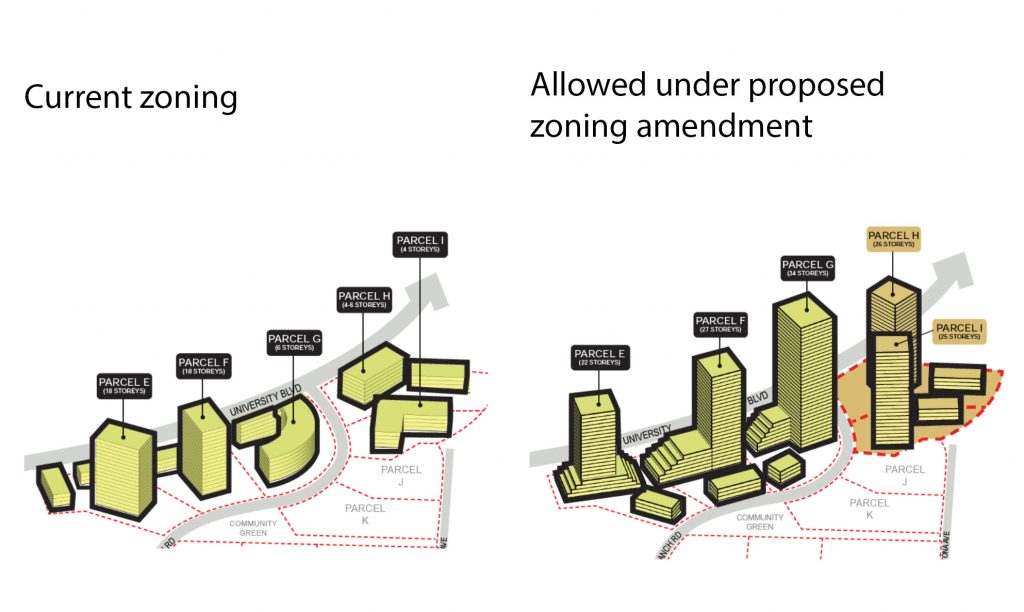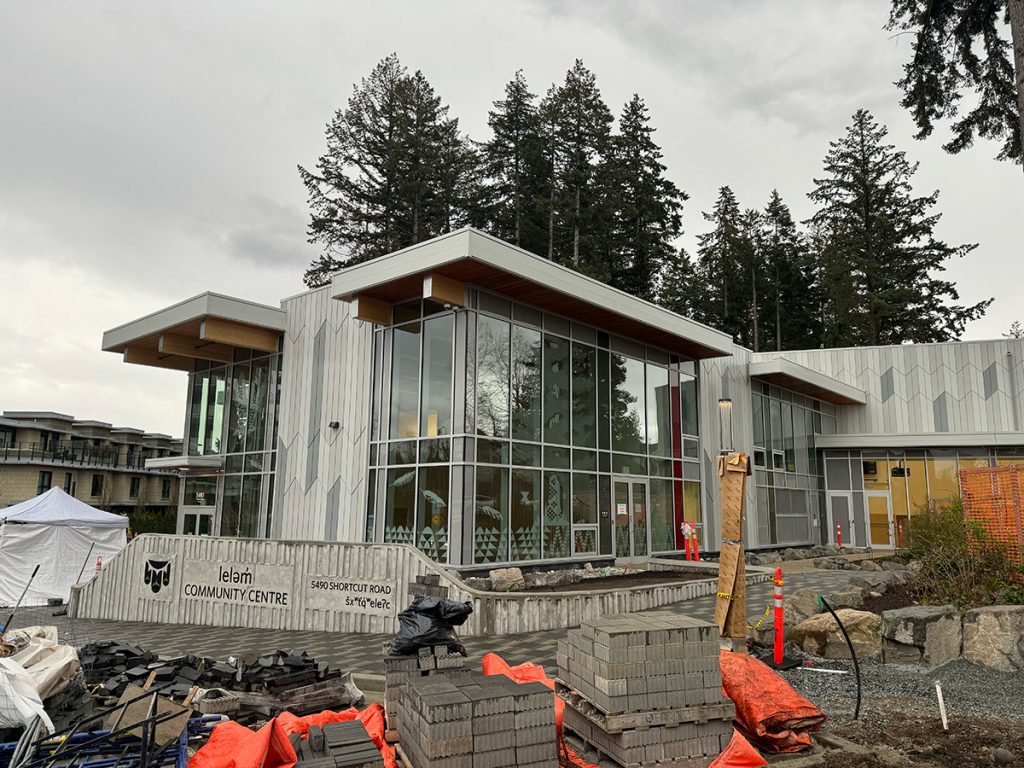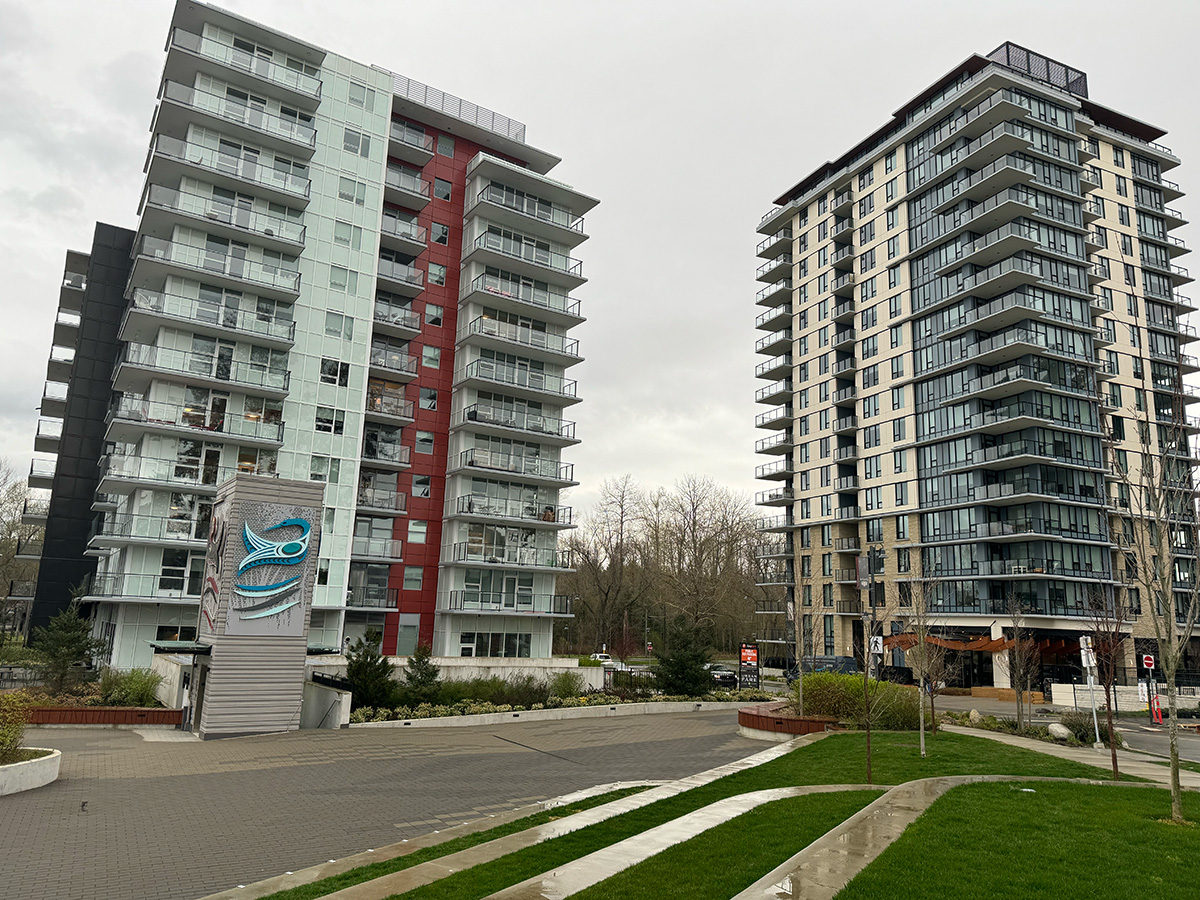An application has been made to the provincial government for a zoning change to the partially completed leləm̓ development.
But as residents of the University Endowment Lands, we are very concerned that a good project is about to be messed up by an ill-advised request to allow a massive increase in density. We urge that the recent rezoning proposal be rejected.
The entire 9-hectare site was rezoned in 2017 to allow a higher density from the four-storey apartment zoning then in place. One portion of the development is complete and another portion is now being built.

The application concerns the parcels of land that are still vacant and for which work has not yet started. At present a variety of townhouses and four to six-storey apartment buildings, plus two 18-storey towers, are permitted.
The new application is for a massive increase in density with five towers from 22 to 34 storeys. An additional 31,150 square metres would be added to the 55,000 square metres already allowed, an increase of 57 percent.

(Source: Community Advisory Council – University Endowment Lands)
The zoning put in place a few years ago was done with a lot of input from UEL residents and the result was a good quality plan. The mix of building type and size was created to fit the project context and provide a livable community. So far this is working out. Tower height was limited to 18 storeys to fit with the maximum height of the trees in the on-site park and neighbouring Pacific Spirit Park. The work completed to date is attractive and has been met with general approval.
The revised plan, developed without discussion or input from the community, will be completely unlike the portion built to date and will be wildly out of scale. This is not an intensely urban setting and the size and form of the buildings will be inappropriate and unattractive.
The rezoning application is described as an amendment to the existing zoning. This means it would not have to fully comply with the changes to building standards of the rest of the UEL multifamily areas, including higher standards under the B.C. Energy Step Code. It also does not make any attempt to strive for Net Zero Ready under the new B.C. Zero Carbon Step Code or low-carbon building methods such as mass timber.
In reality, this proposed amendment is a completely new approach to this part of the leləm̓ project and should be considered as an entirely new development, not a minor change to the existing development.
The proposed rezoning will add 462 market rental units and 160 more market condos, with the total number of units just on these five parcels of land rising to 1,222. There is no mention of affordable or below-market units. It can be expected that all of these units, either owned or rental, will be expensive. Only a small number of three-bedroom units are available, so most of the proposed units are not meant for families.

Other problems include the reduction in parking from the already reduced requirements, and the potential overloading of the small community centre now being finished as part of leləm̓’s phase one.
It is disappointing that what was promising to be a good addition to the housing stock of the University Endowment Lands could be ruined by this rezoning. To be sure, there is a lot of money to be made in creating a large amount of building potential out of thin air, but this is not a good proposal.
THE UEL COMMUNITY ADVISORY COUNCIL (CAC) ADVISES THE UNIVERSITY ENDOWMENT LANDS (UEL) MANAGER ON MATTERS THAT EFFECT ON THE COST, QUALITY OR CAPACITY OF COMMUNITY SERVICES.
